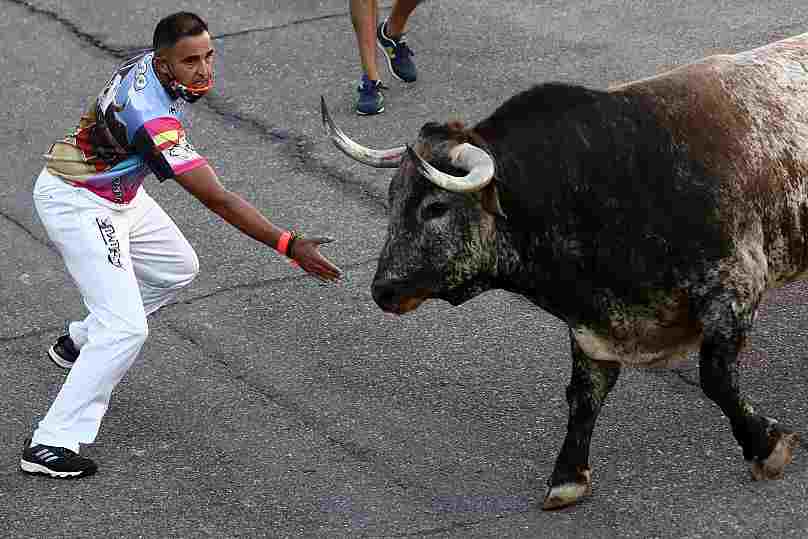
The 55-year-old was repeatedly attacked on Saturday by a bull, which struck his left thigh with its horn, severing an artery. He also sustained a head injury.
Spectators at the festival in Onda, a town in eastern Spain, attempted but failed to distract the bull. The injured man was transported to a hospital in nearby Villareal, where he succumbed to excessive bleeding.
This was the first fatality at a bull-running event in Spain since these festivals resumed following the easing of Covid-19 restrictions in the summer.
In response, Onda’s town council called off all remaining bull-running events scheduled for the festival, which had been set to conclude on Sunday.
The tragedy has intensified the ongoing debate about whether such festivals should be prohibited. Only a few have been held since Spain lifted its coronavirus-related restrictions.
A 2020 poll by Electomania revealed that 46.7% of Spaniards supported banning bullfighting, while 34.7% disapproved of it but opposed an official ban, and 18.6% wanted the tradition to continue.
Reflecting a decline in support, Spanish teenagers who recently received a €400 (£338) government grant for cultural activities were prohibited from using the funds to attend bullfighting events.







